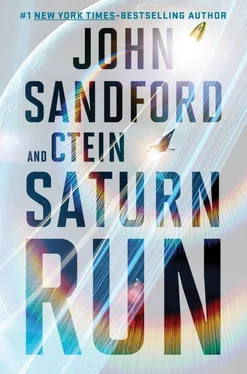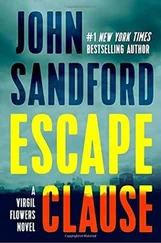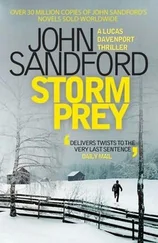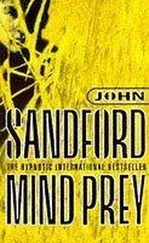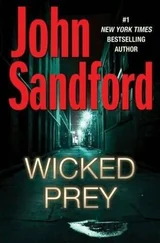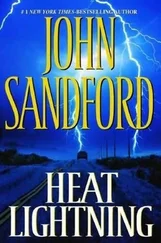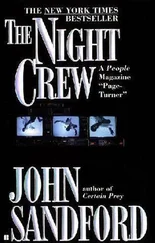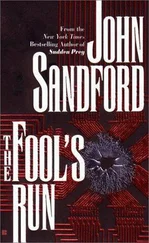Sun: “We will get it from somebody.”
“Good luck with that.”
“I would point out that we could simply take the memory modules, and ship them separately back to Earth.”
Crow shook his head. “No. You can’t.”
He told them about the burn box, and the secret switches.
The discussion went downhill from there. Cui made another appeal to Fang-Castro, who was still standing.
Fang-Castro: “Naomi Fang-Castro, rear admiral, U.S. Navy, 756-487-8765.”
Sun turned to Crow: “It’s time to talk to your president. You can establish a connection with that slate?”
“Yes, but not from here. There is a separately secured network in my quarters. It’s tempest-hardened. That’s the only way I can set up a line to the President. It wouldn’t be good if anyone on the ship could listen in to our communications.”
“Let me guess, you’re the only one who can operate that slate.”
Again, a smile: “It’s standard issue for high-level diplomacy. Biometrically linked to me. Nobody else can start it up, and it’ll shut down after three minutes if it doesn’t sense my thumb. Oh, and it requires a live thumb. It can tell.”
Cui looked at Fang-Castro, then at Crow, and sighed. She told the two special forces officers to escort the Americans back to their quarters. “Mr. Crow, Lieutenant Sun and I will confer, and then we will visit you, and perhaps speak to your president.”
“I would hurry,” Crow said. “You’ve cut the data stream to Earth and that will be noticed. We will have questions on the way back, by now. If they don’t get answers, we might get a war even if you give the ship back to us—because one way or another, our president and military people will understand what has happened.”
Cui nodded.
When they were alone, Cui asked Sun: “So, are we at war, or not?”
“Right now, we are Schrödinger’s cat,” she said. “We need to work on our talking points.”
Fifteen minutes later, with Fang-Castro still confined to her quarters, Cui and Sun visited Crow in his. Cui instructed the bridge to reactivate the network in Crow’s room and the adjacent corridor.
Crow could’ve done both, by himself, but wasn’t about to reveal that.
Cui instructed Crow to initiate a link to the White House. Once he’d started the process running, she took the slate from him and walked out of the room. She got barely a meter away from the door when an orange alert came up on the screen: “Authorized network no longer available—suspending link initialization.”
She stepped back into the room. The alert message was replaced by one stating that initialization had resumed. She stepped just outside the doorway and closed the door. The orange alert reappeared. The network was shielded and the slate locked to it, just as Crow had said. She stepped back into the room and returned the slate to him before the biometric authorization timed out.
Crow tipped his head: “You see?”
“I see.”
In another minute, the slate finished initializing the downlink. Had they been close to Earth, Crow would have waited for a response from the White House server confirming the link. With more than an hour of light-speed delay, that was infeasible.
Crow looked at Cui, who nodded, and Crow looked at the vid screen, with a still image of Santeros smiling from the Oval Office.
“President Santeros. I am calling to inform you of some extraordinary events this morning. The Nixon has been seized by military members of the Chinese ship Celestial Odyssey . Admiral Fang-Castro has refused any cooperation with the Chinese and has indicated by her actions that she considers herself a prisoner of war. Her legal status, of course, would be up to you and to Congress, since she can’t unilaterally declare war. At the moment, however, she is refusing the Chinese any cooperation.”
He told Santeros that the burn box had been activated. He told her that the Chinese wanted to examine the alien datastore in the Nixon ’s computer memory, and that he’d informed them that he didn’t know the location, and that in any case, the files were fully encrypted and the only key to the encryption was on Earth, as the President knew.
When he finished, he nodded at Cui, who said, “Madam President, this is neither an act of war, nor of piracy. However, what the Nixon has done poses an existential threat to the Chinese people, more serious than any atomic bomb. You have, essentially, declared war on us by seizing all the memory modules from the alien planetoid, when they were clearly intended for all humans. There are eight QSUs. We want two of them. You may have two of them. The other four would go to the other major geopolitical blocs. If this is agreed, we will promptly turn control of the ship back to Admiral Fang-Castro.”
She nodded at Crow and said, “You may close the link.”
Crow said, “It’ll be at least a couple of hours before we hear back—probably more than that, especially if they have to fight a war first. What would you like me to do in the meantime?”
Cui looked at him soberly. “You might wish to think about ways to persuade her.”
Sun: “When I was going to graduate school at UCLA…”
Crow: “I would have guessed Berkeley…”
Sun: “…there was a saying. ‘Better to ask forgiveness than permission.’ If you deliver the QSU units to us—only two of the eight, along with two readers—you will present her with a fait accompli, and she will have to make the best of it. We return control of the ship to you, with certain safeguards, and there will be no war, no controversy, no piracy, no problem.”
“Only the admiral has the power to do that, and she won’t,” Crow said. “Perhaps I should give you a few more details on the switches.”
“Please…”
“You can’t disable the burn box. Try to force your way into it, you’ll trigger the devices. Remove the box from the strong room, they go off. Try to power them down without the release code, they’ll go off. I don’t know who has the switches: only Admiral Fang-Castro knows how they were distributed. If Fang-Castro is sequestered and you attempt to torture her for the information, the first trigger-holder to find out will burn the box. Really, over some long period of time, and with more of that gas you used on us—another, separate act of war, by the way—you might get some of the switches, but I doubt that you’ll get all of them.”
Sun looked at him, then said, “Shit.”
Two hours later, one of the Chinese special forces officers escorted Fang-Castro to Crow’s quarters.
“How’s it going?” Crow asked. Cui and Sun were not yet there.
“I’m frantically bored,” she said. “They’ve turned off everything inside my quarters. I can’t even watch Feeling Up Frankie .”
“So maybe there is an upside to this mess,” Crow said.
“How did they get away with that gas, or whatever it was?” Fang-Castro asked.
“I don’t want to think about that, because I might have to find a pistol and stick it in my ear,” Crow said. “My fault: I should have thought of it. It was some form of encapsulated LSD, I’m sure. It’s powerful stuff.”
“Do we have any?”
“I wish.”
There was a ping at the door, and then Cui and Sun stepped in. Fang-Castro stood up, turned her back on them.
Cui shook her head and asked Crow, “Anything?”
“No, but it won’t be long.”
Fang-Castro broke her silence after fifteen minutes. Addressing Cui, she asked, “Do I have permission to return to my quarters?”
Cui shook her head: “No. You must hear what the President has to say.”
Fang-Castro turned away again.
Santeros showed up five minutes later. She was seated at her desk, the pale greens of Washingtonian spring visible through the windows of the Oval Office. It had been a long time since any of them had seen trees.
Читать дальше
